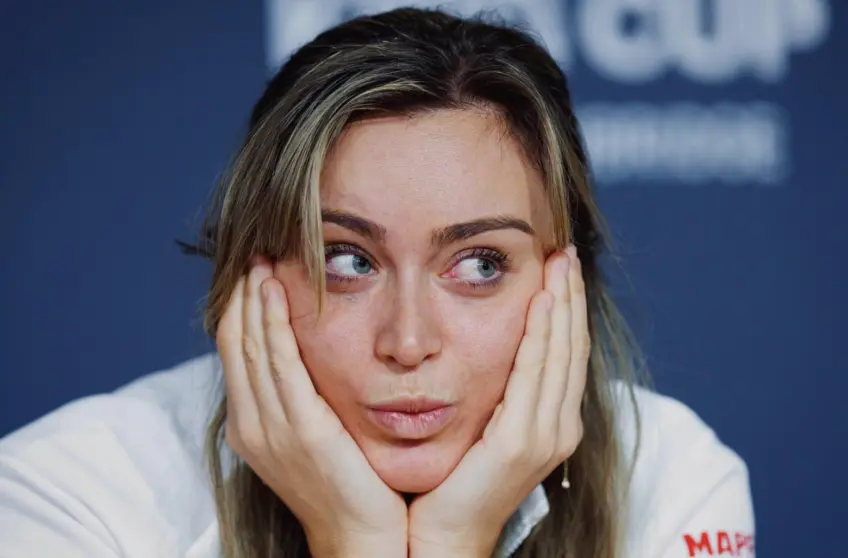As the clay courts of the Caja Mágica hummed with excitement for the 2025 Mutua Madrid Open, Paula Badosa, Spain’s tennis firebrand, stole the spotlight—not just with her thunderous serves but with raw honesty. In a pre-tournament press conference, the 27-year-old world No. 12 bared her soul, admitting that three years ago, she despised the Spanish media. “I’m going to be honest. I hated you all,” she said, her sly grin slicing through the tension like her fierce backhand. Now, as she readies for battle on home turf, Badosa’s transformation from bitterness to resilience reveals a warrior forged in the crucible of hardship.
Badosa’s journey has been a wild ride of highs and lows. Born in Manhattan to Spanish parents and honed in Barcelona, she dazzled as a junior, clinching the 2015 French Open girls’ title. Hailed as the next Sharapova or Muguruza, she soared to No. 2 in 2022 after winning Indian Wells in 2021. But fame’s weight and a chronic back injury nearly broke her. A 2023 stress fracture pushed her to the brink of retirement, and by 2024, her ranking had crashed to No. 126 after a tearful Madrid exit. “I was a complete disaster. I didn’t want to leave my room,” she admitted, recalling the despair that tested her spirit.
Her rift with the media was born in those dark days. As Spain’s top-ranked woman, Badosa felt crushed by relentless scrutiny. Losses were dissected, comparisons to legends stung, and she dodged press like a plague. “I didn’t want to respond to anything,” she confessed, describing her retreat from the spotlight. Social media venom, which once drove her to delete her accounts, left her sleepless, questioning her talent. “I thought people might be right, that I wasn’t good enough,” she once shared, exposing the mental scars of public judgment.
Yet, the Badosa facing reporters in Madrid was a phoenix risen. Under coach Pol Toledo, she stormed back to the top 10 in 2024, clinching a Washington title and reaching the 2025 Australian Open semifinals. Her 7-5, 6-4 upset of Coco Gauff in Melbourne earned her the 2024 WTA Comeback Player of the Year. “I’m maturing, gaining experience,” she said. “I understand the media now and handle it better.” This shift—from viewing journalists as foes to part of the game—has lightened the pressure of playing at home.
Madrid is Badosa’s crucible. In 2021, she made history as the first Spanish woman to reach the semifinals, fueling her ascent. Now, her 122 mph serve and ferocious baseline game promise to electrify fans, though the Caja Mágica’s intense crowd can be a double-edged sword. Her 2023 first-round epic against Elisabetta Cocciaretto, a two-and-a-half-hour slugfest, taught her to tame the pressure. “It’s something you learn to handle,” she noted, a lesson now etched in her core.
Beyond the court, Badosa’s life crackles with energy. Her rollercoaster romance with Stefanos Tsitsipas, recently rekindled in Dubai, keeps fans hooked. A fashion aficionado, shaped by her parents’ careers, she shines for Nike and Kerastase. Despite a 2024 social media misstep that sparked racism accusations, she’s rebuilt bridges, declaring, “I love you all,” to her global fans—a warmth now extended to the media she once scorned.
As Badosa storms the Madrid clay, she carries Spain’s dreams and a survivor’s wisdom. Her confession of past media hatred isn’t just a soundbite; it’s proof of her evolution. With 30 wins in her last 39 matches, she’s no longer the “broken toy” of old. Now, she’s a force rediscovering tennis’s joy, ready to face the glare—and the press—with fierce resolve.

